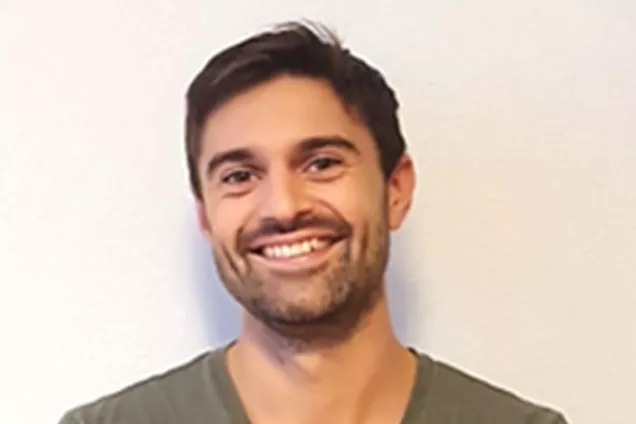WCMM Fellow Paul Bourgine, alongside co-founders Dimitra Zacharaki and Alejandro García García, both researchers in his group, has launched Dhalion Biotech, an innovative startup emerging directly from WCMM research.
Dhalion Biotech is at the forefront of developing next-generation tools to study bone-associated cancers. Leveraging advanced bioengineering, the company creates human bone and bone marrow organoids that offer unprecedented insights into tumor development and treatment response.
As a young, dynamic company deeply rooted in the WCMM environment, Dhalion is committed to transforming human disease modelling, both in vitro and in vivo, to accelerate discoveries in oncology and regenerative medicine.
A Conversation with CEO Dimitra Zacharaki
We sat down with Dhalion Biotech’s CEO, Dimitra Zacharaki, to learn more about the innovation behind the company and its future ambitions.
What is the innovation behind the startup Dhalion, and how does it stand out from existing approaches?
"At Dhalion, we are pioneering the generation of human bone and bone marrow organoids to study bone-developing cancers, including but not limited to leukemia, solid cancer metastases to bone, bone cancers. What excites us most is that, unlike traditional animal models, our platform reflects human disease, enabling more predictive therapeutic testing, de-risking expensive clinical trials and opening new doors for precision medicine."
How has your time and collaborations at WCMM Lund influenced the development of the company?
"WCMM has been a catalyst for innovation. The highly collaborative atmosphere and cutting-edge expertise in stem cell biology, oncology, and biomaterials provided the perfect ground for transforming our scientific discoveries into a startup. Without this strong foundation, Dhalion Biotech would not have come to life."
Could you tell us more about your product and its applications?
"Our prime product, Ossigel, is a cell-free enriched ECM platform of human origin, based on proprietary genetically engineered stem cell line and manufacturing, that enables the formation of miniature human-like bones in a host organism.
These organoids allow for superior cancer engraftment, assessment of bone metastases, and evaluation of new therapies in settings that mirror the patient’s condition in vivo, while minimizing the use of research animals. This makes Ossigel a highly valuable research tool for preclinical research and the development of personalized treatment strategies."
What is your vision for the future of the company?
"Looking ahead, Dhalion's goal is to expand the use of Ossigel beyond blood cancers to other bone-related diseases and metastatic conditions. We aim to build strong partnerships with academia, biotech, and pharma, while further validating our technology to reach higher levels of readiness and building our team with essential scientific and business experts.
Ultimately, we envision Dhalion Biotech as a driver of precision medicine, expediting preclinical programs so that new therapies reach the right patients faster."



